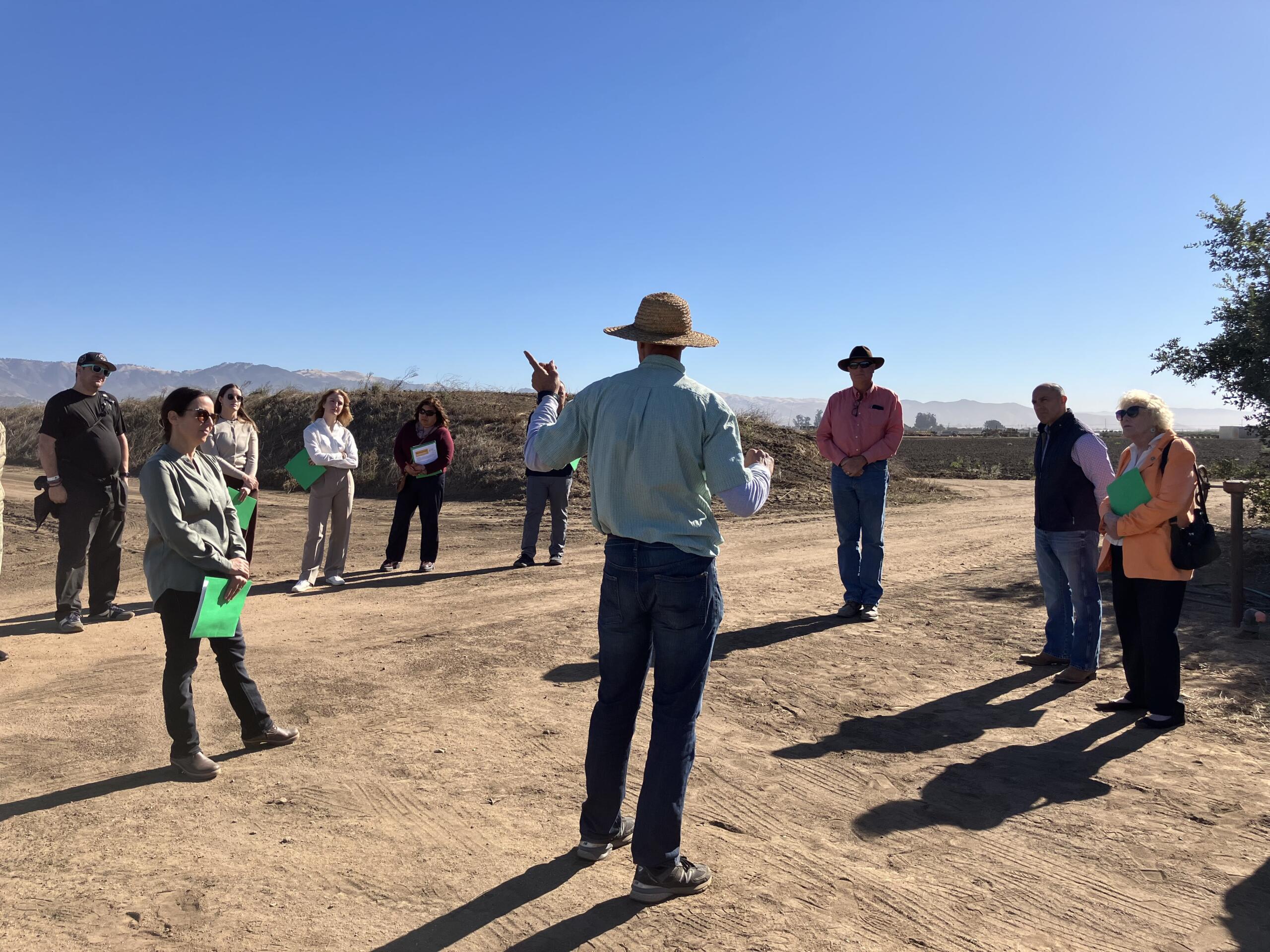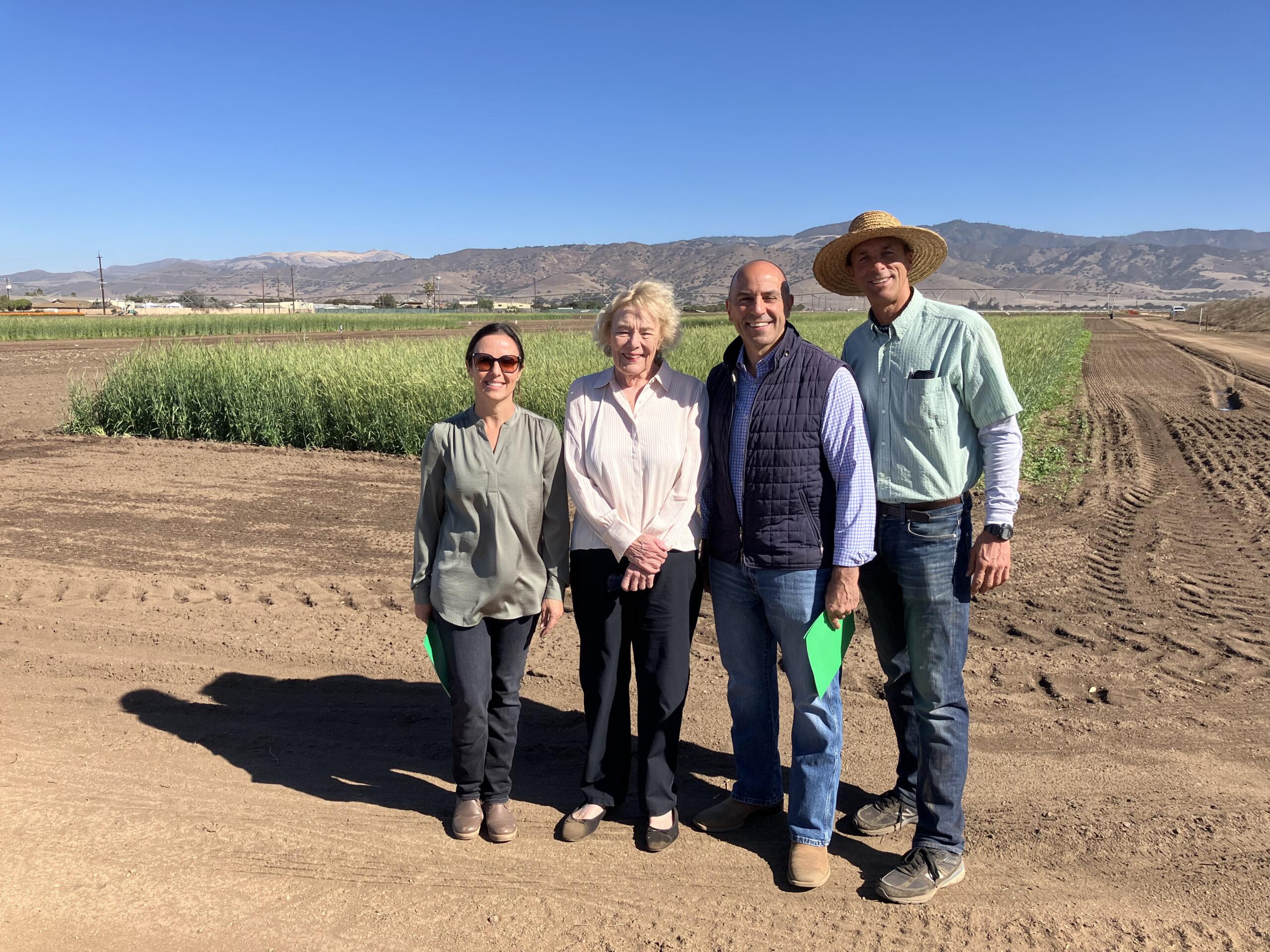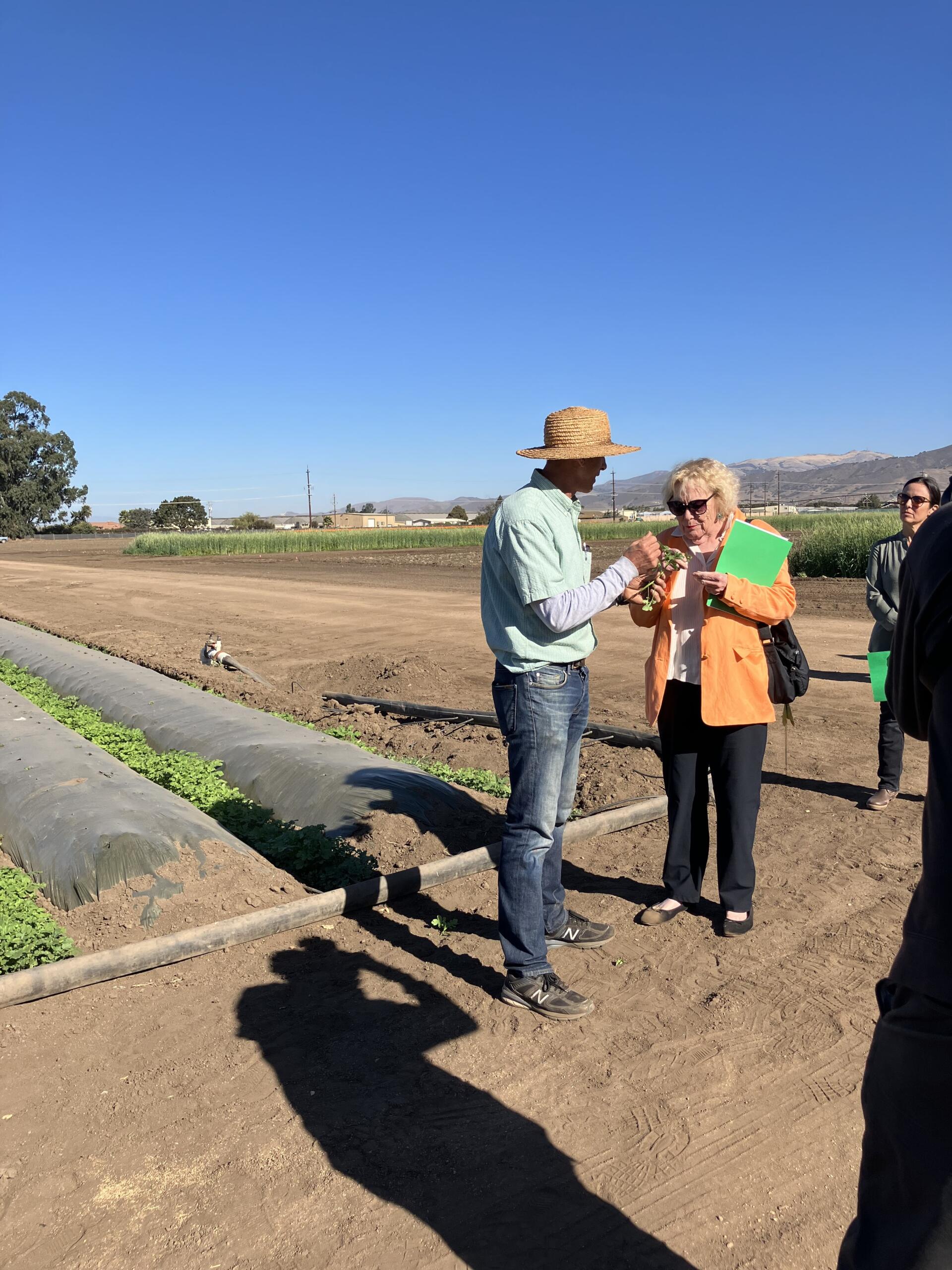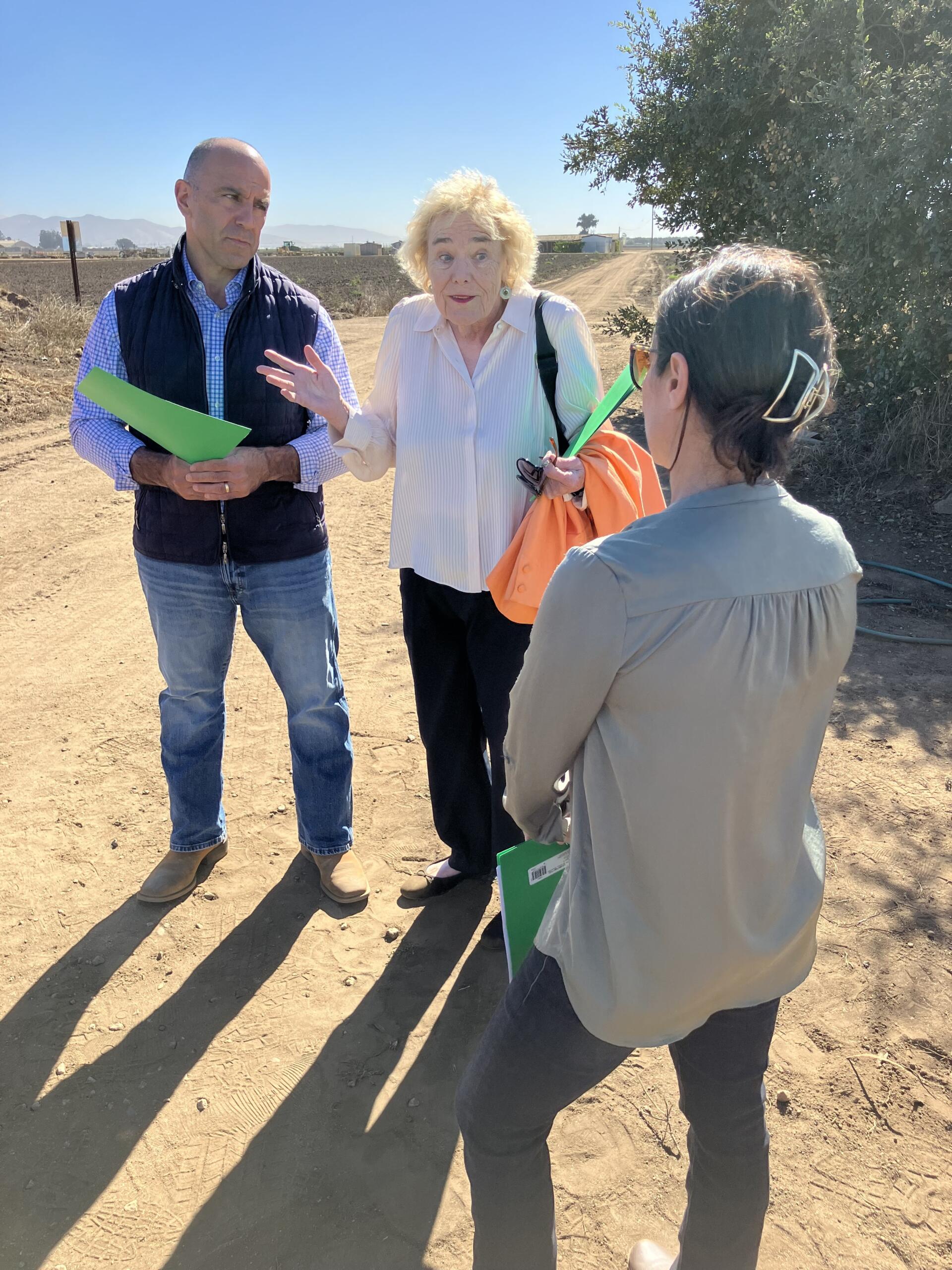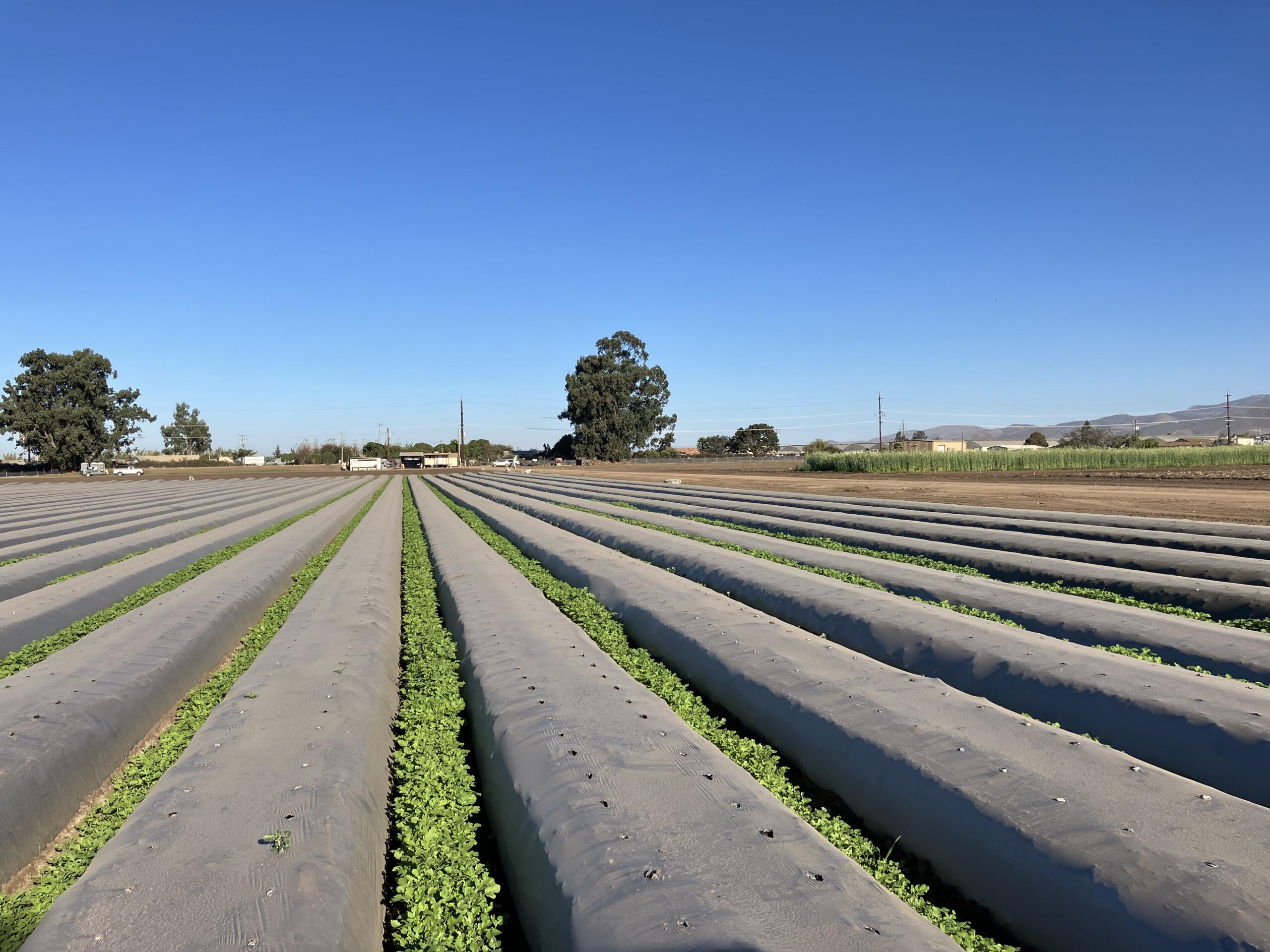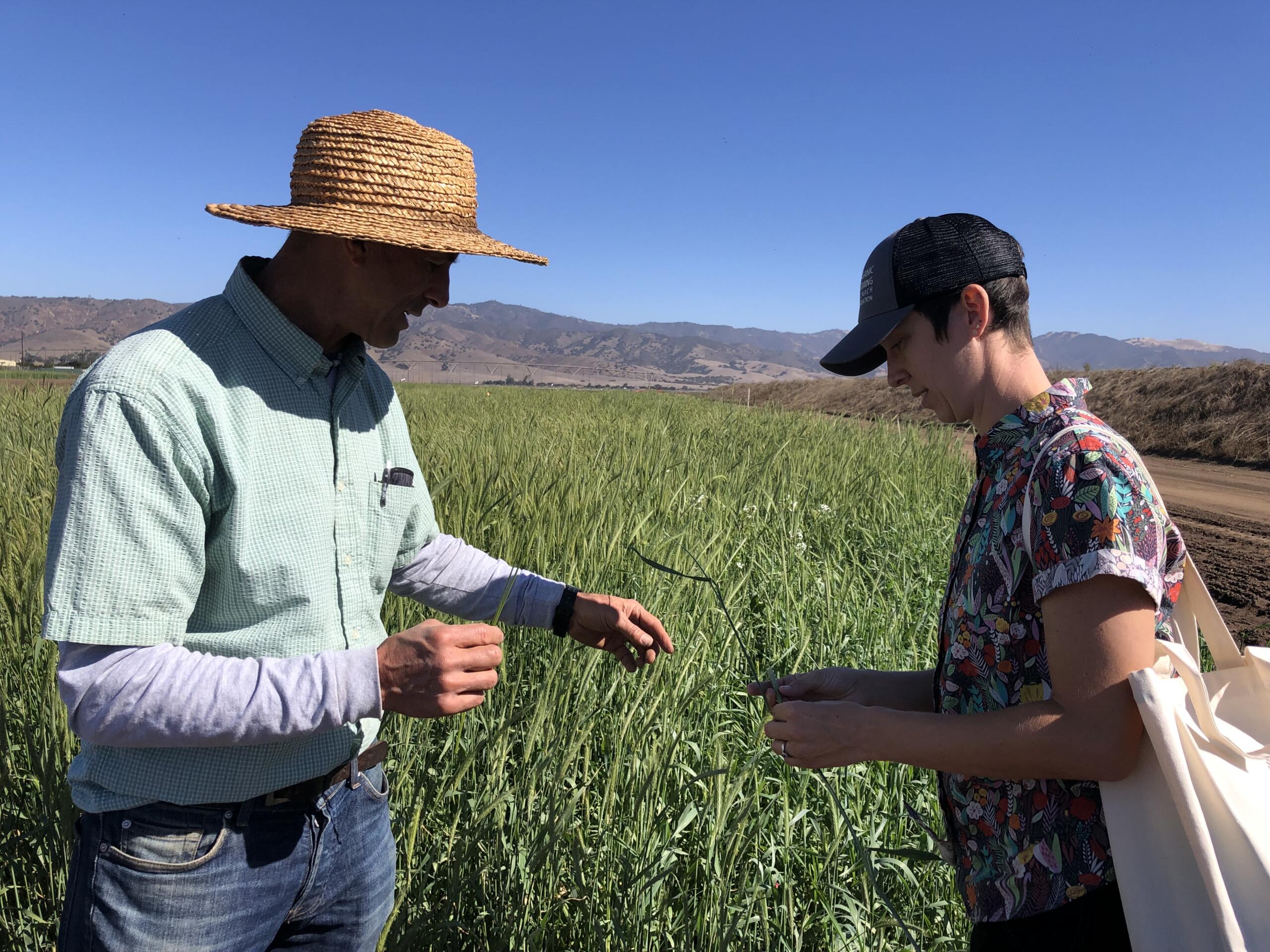FOR IMMEDIATE RELEASE
Local lawmakers and agricultural leaders tour Salinas ARS station, emphasizing the need for expanded funding for organic farming research.
SANTA CRUZ, Calif., Oct. 23, 2024 — The Organic Farming Research Foundation (OFRF) hosted Representative Zoe Lofgren (CA-18) and Representative Jimmy Panetta (CA-19) and their staff alongside agricultural leaders and stakeholders for a field day visit to the USDA’s Agricultural Research Service (ARS) Salinas station. The visit highlighted the critical organic farming research led by Dr. Eric Brennan, emphasizing the need for increased funding to ensure the continuity and expansion of this impactful work.
Dr. Brennan’s research focuses on climate-smart and organic farming practices, particularly cover cropping and improved soil management. His efforts have provided practical, science-based solutions that boost farm resilience, reduce environmental impact, and enhance sustainability for both organic and conventional producers. However, despite the success of these projects, funding has remained stagnant since the mid-2000s, risking the loss of essential expertise and research advancements. OFRF commends Representatives Lofgren and Panetta for their active interest and support in championing organic agriculture. Their leadership is vital to advancing organic research, which benefits farmers, consumers, and the environment. In the greater Bay Area, from Monterey to Sonoma counties, over 1,550 organic producers are generating nearly $1.4 billion in annual gross sales—underscoring the significance of organic agriculture as a significant economic driver in this region.
“The 18th Congressional District is home to a thriving agricultural industry, and thanks to the USDA’s Agricultural Research Service Salinas station, it is also a hub for cutting-edge organic ag research,” said Congresswoman Lofgren. “Scientists’ work to mitigate crop diseases and promote sustainable production practices will help protect farmers’ livelihoods and preserve America’s food supply in the long term. In Congress, I will continue to support initiatives that advance our understanding of organic crops and boost the ag economy in California and nationwide.”
“Our farmers on the Central Coast rely on a robust R&D pipeline to share the bounty of our home with the rest of the world,” said Rep. Panetta. “The work of local researchers at the USDA’s Agricultural Research Station Salinas is helping to improve soil health, pest management, and climate resilience for organic and conventional farms in California’s 19th Congressional District and across the country. I look forward to ensuring that the federal government plays its part so that our innovation continues to bolster our agriculture.”
Despite organic agriculture’s growing market share, less than one percent of ARS funding is allocated to organic research, which has limited innovation and support for organic producers. OFRF has advocated for more robust funding for these initiatives, emphasizing their broader benefits, including enhanced soil health, reduced pesticide use, and improved economic and environmental resilience for farmers.
“Over 20 years ago, OFRF successfully advocated for Congress to create a research position at USDA’s Salinas station to focus specifically on organic farming,” said Brise Tencer, Executive Director of OFRF. “Dr. Brennan’s work has directly helped regional producers implement good soil health practices, advance climate-friendly agriculture, and dramatically increase the number of acres with cover crops in California. This is the type of research investment we want to see more of.”
Dr. Brennan’s research has led to improved soil health, higher crop yields, and more sustainable pest and weed management practices, empowering farmers across the region to thrive in an increasingly competitive market. However, to maintain and expand this research, the project requires an additional $1.5 million annually, which would support hiring a second scientist and broaden the project’s scope to address emerging challenges in organic farming.
Field day attendees reiterated the vital role of ongoing research in promoting organic and sustainable farming practices, stressing the need for increased funding to ensure the project’s long-term success. The event brought together leaders from the agricultural sector, including:
- Dr. Bill Wintermantel, Research Leader, USDA-ARS
- Jo Ann Baumgartner, Executive Director, Wild Farm Alliance
- Jennifer Clarke, Executive Director, California Leafy Greens Research Program
- Phil Foster, local small vegetable farmer/research collaborator at Pinnacle Organically Grown Produce
- Roy Fuentes, local strawberry farmer/research collaborator at Fuentes Berry Farms
- Christopher Valadez, President/CEO, Grower-Shipper Association of Central California
Following the field tours, discussions sparked several critical insights regarding the importance of continued investment in organic agriculture research. Here are the key takeaways from the event:
- Resilience and Climate Adaptation: Investing in organic agriculture research builds resilience against climate change, providing regionally relevant solutions for organic management.
- High Return on Investment: For every dollar invested in agricultural research, there is a $20 return to the economy, benefiting rural communities and local businesses.
- National Demand for Organic Products: Continued research is essential to closing the gap between domestic production and growing consumer demand for organic products, reducing reliance on imports.
For more information and to stay updated on policy developments, sign up for OFRF’s newsletter featuring Gordon’s Policy Corner, a monthly update from our Senior Policy & Programs Manager.
###
About Organic Farming Research Foundation
About OFRF: The Organic Farming Research Foundation (OFRF), headquartered in Santa Cruz, California, with a remote team based across the U.S., works to foster the improvement and widespread adoption of organic farming systems. OFRF cultivates organic research, education, and federal policies that bring more farmers and acreage into organic production. For more information about OFRF, please visit our website: https://www.ofrf.org/.
Media Contact:
Ashley Dulaney, Communications Director, OFRF
ashley@ofrf.orf
P.O. Box 440, Santa Cruz, CA 95061



